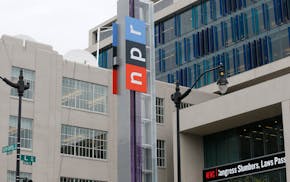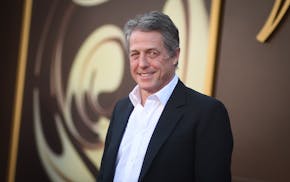EADS, Europe's biggest aerospace company, proposed an overhaul of its ownership structure. Germany and France will end up with reduced stakes of 12 percent each and Daimler and Lagardère, EADS' German and French industrial shareholders, will be free to divest. The proportion of shares that float on the stock market will increase to 70 percent from 49 percent. The new structure will go some way toward normalizing EADS, but would not have prevented the political meddling that torpedoed a proposed merger with BAE Systems earlier in 2012.
Olam, a Singapore-based commodities trader, got the backing of Temasek, the city-state's investment company, in its fight with Carson Block, a short-seller who has profited in the past from the "opacity" of Chinese firms. In recent weeks Block has raised questions about Olam's debt and accounting procedures, but Temasek is backing its $1.25 billion capital-raising plan.
HSBC sold its 15.6-percent stake in Ping An, a big Chinese insurance company, for $9.4 billion. The buyer is Dhanin Chearavanont, a Thai-Chinese businessman who is, according to Forbes, Thailand's richest man. Dhanin's CP Group claims to have been the first foreign company to invest in China after Deng Xiaoping's economic reforms in the late 1970s.
Citigroup slashed 11,000 jobs, 4 percent of its workforce. Banks are carrying out a particularly severe round of job-shedding, although Citi was unusual in concentrating its cuts on consumer rather than investment banking. The move was the first big announcement since October, when Michael Corbat took over as Citi's chief executive after Vikram Pandit was suddenly ousted.
The European Commission fined seven companies a total of nearly $2 billion for operating a cartel in tubes for television and computer monitors. It is the biggest penalty the commission ever has exacted from a specific industry. The seven firms include LG, Philips and Samsung.
Freeport-McMoRan, a copper-and-gold mining company, agreed to acquire two energy-exploration companies in deals that total $20 billion, including debt. It is unusual for a mining company to buy oil-and-gas assets, though BHP Billiton is a previous exception.
A four-year dispute between two Russian oligarchs over management and shareholder value at Norilsk Nickel, the world's biggest producer of nickel and palladium, was resolved, at least for now. Oleg Deripaska and Vladimir Potanin both hold large stakes in Norilsk and were due in court in London to continue their tussle.
Netflix secured the exclusive American online rights to show films made by Disney. The licensing arrangement is Netflix's biggest challenge yet to pay-television broadcasters such as HBO. Netflix is refocusing its primary business from online DVD rentals to streaming content through computers and, increasingly, Internet-enabled smart-TVs.
News Corp. made some management changes as it prepares to split into two divisions. Rupert Murdoch will head the newly named Fox Group, which will focus on broadcasting and film. Robert Thomson, the editor of the Wall Street Journal, which is owned by Murdoch, will become chief executive of News Corp's publishing arm.
Tesco, Britain's biggest retailer, confirmed that it would probably sell its money-losing Fresh & Easy grocery chain next year. Its entry into the American market in 2007 was audacious. Fresh & Easy's shops, which are mainly in California but also in Las Vegas and Phoenix, were seen as halfway between supermarkets and convenience stores.
Political economyGeorge Osborne, Britain's chancellor of the exchequer, told the House of Commons that austerity would continue until 2018, longer than he had hoped. The government is struggling with stubbornly high debt and a weak economy.
Brazil's economy performed much worse than expected in the third quarter, growing by less than 1 percent compared with the same period a year earlier. This comes after a range of measures introduced by the government to try to lift output.
India, another member of the once-hot "BRICs" quartet, also reported a poor quarter: Growth was 5.3 percent, well below what is needed to raise living standards as fast as had been hoped.
Chancellor Angela Merkel of Germany opened her campaign for re-election next September. Delegates from her Christian Democratic Union elected her to a seventh term as party leader with a record 98 percent of the vote.
Enrique Pena Nieto took office as Mexico's president. He promised speedy reforms of tax, energy, television and education, and secured a wide-ranging pact in which all three main parties pledged to implement his proposals.
In its annual survey of perceptions of corruption, Transparency International, a Berlin-based watchdog, found that Venezuela was the most corrupt country in Latin America. Chile was deemed the least corrupt in the region.
Georgia's parliament votes to approve so-called 'Russian law' targeting media in first reading
Jill Biden says an agreement to let federal employee military spouses work from overseas is overdue

An NPR editor who wrote a critical essay on the company has resigned after being suspended
